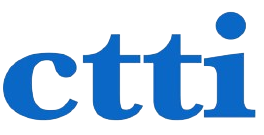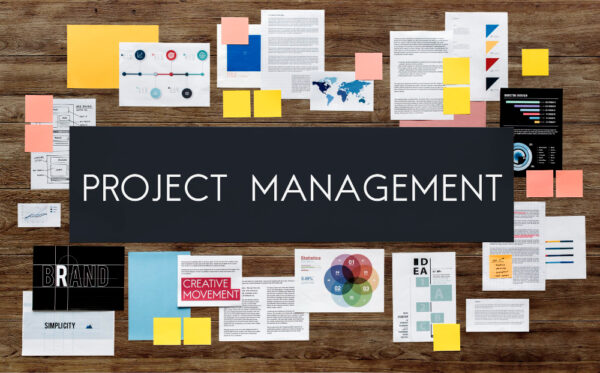Course Overview
The “Certificate in Project Management” is a comprehensive three-month program designed to provide learners with the knowledge, skills, and tools to manage projects across various industries effectively. This course covers the entire project management lifecycle, from initiation to closure, and includes practical applications of project management principles, methodologies, and best practices. The course is structured into detailed modules, each focusing on critical aspects of project management, and includes interactive lectures, hands-on exercises, and real-world projects.
Course Structure
Duration: Three months
Sessions per week: 3
Hours per session: 2
Total hours: 72
Module 1: Introduction to Project Management (8 hours)
Session 1: Overview of Project Management
Definition and importance of project management
Key concepts and terminology
Role and responsibilities of a project manager
Session 2: Project Management Frameworks and Methodologies
Overview of project management methodologies (Waterfall, Agile, PRINCE2)
Choosing the right methodology for your project
Session 3: Project Lifecycle and Processes
Understanding the project lifecycle (initiation, planning, execution, monitoring, and closure)
Key processes in each phase
Session 4: Project Management Tools and Techniques
Introduction to project management software (Microsoft Project, Trello, Asana)
Tools for planning, scheduling, and tracking projects
Module 2: Project Initiation and Planning (12 hours)
Session 5: Project Initiation
Developing a project charter
Identifying stakeholders and defining their roles
Session 6: Defining Project Scope
Creating a project scope statement
Techniques for defining and managing scope
Session 7: Project Planning
Developing a project management plan
Planning processes and components
Session 8: Work Breakdown Structure (WBS)
Creating a WBS
Breaking down project deliverables into manageable tasks
Session 9: Project Scheduling
Developing a project schedule
Techniques for creating and managing schedules (Gantt charts, Critical Path Method)
Session 10: Resource Management
Identifying and allocating resources
Managing resource constraints and conflicts
Module 3: Project Risk Management (10 hours)
Session 11: Introduction to Risk Management
Understanding risk management and its importance
Key concepts and terminology
Session 12: Risk Identification and Assessment
Techniques for identifying risks (brainstorming, SWOT analysis)
Qualitative and quantitative risk assessment methods
Session 13: Risk Response Planning
Developing risk response strategies
Creating risk response plans
Session 14: Risk Monitoring and Control
Techniques for monitoring and controlling risks
Tools for tracking and reporting risks
Session 15: Hands-On Risk Management Project
Real-world risk management project
Practical exercises with risk identification, assessment, and response planning
Module 4: Project Execution and Monitoring (10 hours)
Session 16: Executing the Project Plan
Managing project execution
Directing and managing project work
Session 17: Quality Management
Understanding quality management principles
Tools and techniques for managing project quality
Session 18: Communication Management
Developing a communication plan
Techniques for effective communication with stakeholders
Session 19: Performance Monitoring and Reporting
Techniques for monitoring project performance (KPIs, performance metrics)
Tools for reporting project status (dashboards, progress reports)
Session 20: Change Management
Understanding change management processes
Techniques for managing project changes
Module 5: Agile Project Management (10 hours)
Session 21: Introduction to Agile
Understanding Agile principles and values
Overview of Agile methodologies (Scrum, Kanban)
Session 22: Scrum Framework
Key roles in Scrum (Product Owner, Scrum Master, Development Team)
Scrum events (Sprint Planning, Daily Stand-up, Sprint Review, Sprint Retrospective)
Session 23: Kanban Method
Principles and practices of Kanban
Implementing Kanban for project management
Session 24: Agile Tools and Techniques
Tools for Agile project management (JIRA, Trello)
Techniques for Agile planning and estimation
Session 25: Hands-On Agile Project
Real-world Agile project
Practical exercises with Scrum and Kanban methodologies
Module 6: Project Financial Management (8 hours)
Session 26: Budgeting and Cost Estimation
Techniques for estimating project costs
Developing a project budget
Session 27: Financial Management Tools
Tools for tracking project costs and budget (Microsoft Excel, project management software)
Techniques for managing project finances
Session 28: Financial Reporting
Techniques for financial reporting and analysis
Creating financial reports for stakeholders
Session 29: Cost Control
Techniques for controlling project costs
Tools for tracking and managing project expenses
Session 30: Hands-On Financial Management Project
Real-world financial management project
Practical exercises with budgeting, cost estimation, and financial reporting
Module 7: Project Closure and Professional Skills (8 hours)
Session 31: Project Closure
Processes for closing a project
Techniques for conducting project reviews and lessons learned
Session 32: Professional Skills for Project Managers
Effective leadership and team management
Conflict resolution and negotiation skills
Session 33: Ethics and Professionalism in Project Management
Ethical considerations in project management
Professional standards and best practices
Session 34: Career Development and Networking
Building a career in project management
Networking and continuing education
Module 8: Capstone Project (14 hours)
Session 35: Project Planning and Design
Selecting a project topic
Planning and designing the project
Session 36: Project Development
Implementing the project
Integrating various project management concepts
Session 37: Project Development (continued)
Debugging and testing the project
Preparing for presentation
Session 38: Project Presentation and Review
Presenting the project to peers and instructors
Receiving feedback and making improvements
Conclusion
The “Certificate in Project Management” program provides a comprehensive and in-depth understanding of project management principles, methodologies, and best practices. Through a blend of theoretical knowledge and practical experience, learners will develop the skills needed to manage projects and advance their careers in project management effectively. By the end of the course, participants will be well-equipped to tackle real-world project management challenges and achieve project success.
Join us at CTTI and embark on a transformative journey to mastering project management.


Reviews
There are no reviews yet.